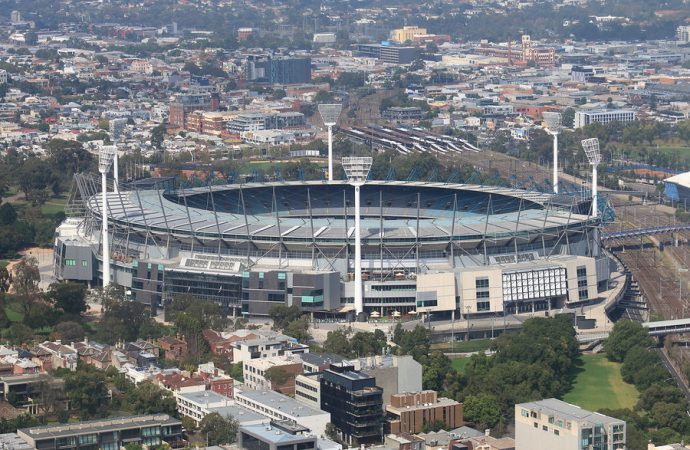Gaia machine diverts 100 of garden waste away from landfill by becoming compostable substance, says MCG general manager of facilities, Peter Wearne
Melbourne Cricket Ground (MCG) – one of the most iconic venues in cricket – has implemented an innovative organic dehydrator system, which turns its food and garden waste into a soil additive for the surrounding Yarra Park.
The Gaia machine, which is distributed locally by Australian company Eco Guardians, prevents the MCG from sending 100 tonnes of garden waste per year to landfill (which it was previously because of its high nitrogen content), and 250 tonnes of food waste to a local recycling centre.
It can turn organic material into a compostable substance in under 10 hours – crucial for a venue with such a busy calendar.
“The main challenge we had is that during the Australian Rules Football season we had three games on during the weekend, so we needed something that would be able to cope with the volume in a quick turnaround time,” Peter Wearne, general manager of facilities at MCG, tells The Sustainability Report.
The dehydrator reduces the weight of the waste down to 30% of its original weight, turning it into “coffee ground-like material” to be spread on Yarra Park.
According to Wearne, the dehydrator will “pay for itself” within four years because of the money saved not sending food waste to the recycling centre.
He adds: “It really is a win, win, win situation. Environmentally it’s a win, financially it’s a win and the quality of Yarra Park will be greatly enhanced by adding this fertilizer product to it.
“We want to do a lot of work in the environmental space and reduce our footprint, but finding the right solution is not an easy path. We spend a lot of time scoping out what we want to achieve and the must-have deliverables. We did a lot of work before we committed to one of these machines – we tested it out and independently analysed the additive product before purchasing.”
AU$12m water facility
The dehydrator is just one component of an extensive sustainability plan being overseen by Wearne, who sits on the board of the Sports Environment Alliance.
Recyclable waste has increased from 20% around 10 years ago to 80-85% now, although Wearne concedes that “finding the next 15% is very difficult, but that’s what we’re working on”. Melbourne Cricket Club, responsible for the management of the MCG, also invested AU$12m building a water recycling facility, which has helped reduce water consumption by around 50% during the winter months.
“The water facility doesn’t stack up as a business case because we spent so much money on it, however the MCG sat in the top 100 users of water in Victoria which didn’t sit well with us as an organisation,” Wearne explains. “It wasn’t what we stood for, what we believed in, so we made the capital investment to attack that area so we could reduce our water consumption.”
In addition, the MCG is sending off its soft plastic bag waste to a local company, which transforms them into usable products, such as bollards that are being purchased for Yarra Park. One bollard is produced from 100,000 recycled plastic bags.
Wearne and his team are also currently deciding whether to continue a partnership with technology company Siemans, which helped reduce the MCG’s energy consumption by 20% after completing the venue’s first energy performance contract.
“There’s some pretty simple things to do, like replacing 12,000 inefficient light fittings and implementing better building management systems that monitor energy consumption,” says Wearne. “We’ve also gone for more efficient chillers for heating, ventilation and air conditioning, as well as putting someone in charge of managing that system and implementing cultural change in the organisation as well.”











Leave a Comment
Your email address will not be published. Required fields are marked with *